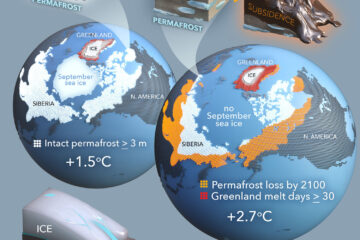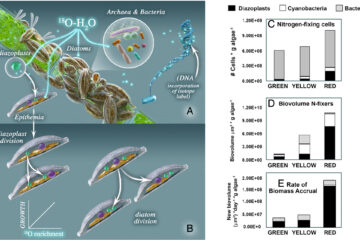CO2 elicits long-term decline in nitrogen fixation
Rising atmospheric carbon dioxide (Ca), a product of fossil fuel burning, land-use change, and cement manufacture, is expected to cause a large carbon sink in land ecosystems, partly mitigating human-driven climate change (1). Increasing biological nitrogen fixation with rising Ca has been invoked as a means to provide the N necessary to support C accumulation (2). As in many short-term experiments (3), we found that Ca enrichment increased N fixation during the first year of treatment in an oak woodland. However, the effect declined and disappeared by the third year. Ca enrichment consistently depressed N fixation during the 5th, 6th, and 7th years of treatment. Reduced availability of the micro-nutrient molybdenum, a key constituent of nitrogenase, best explains this reduction in N fixation. Our results demonstrate how multiple element interactions can influence ecosystem responses to atmospheric change and caution against expecting increased biological N fixation to fuel terrestrial C accumulation.


